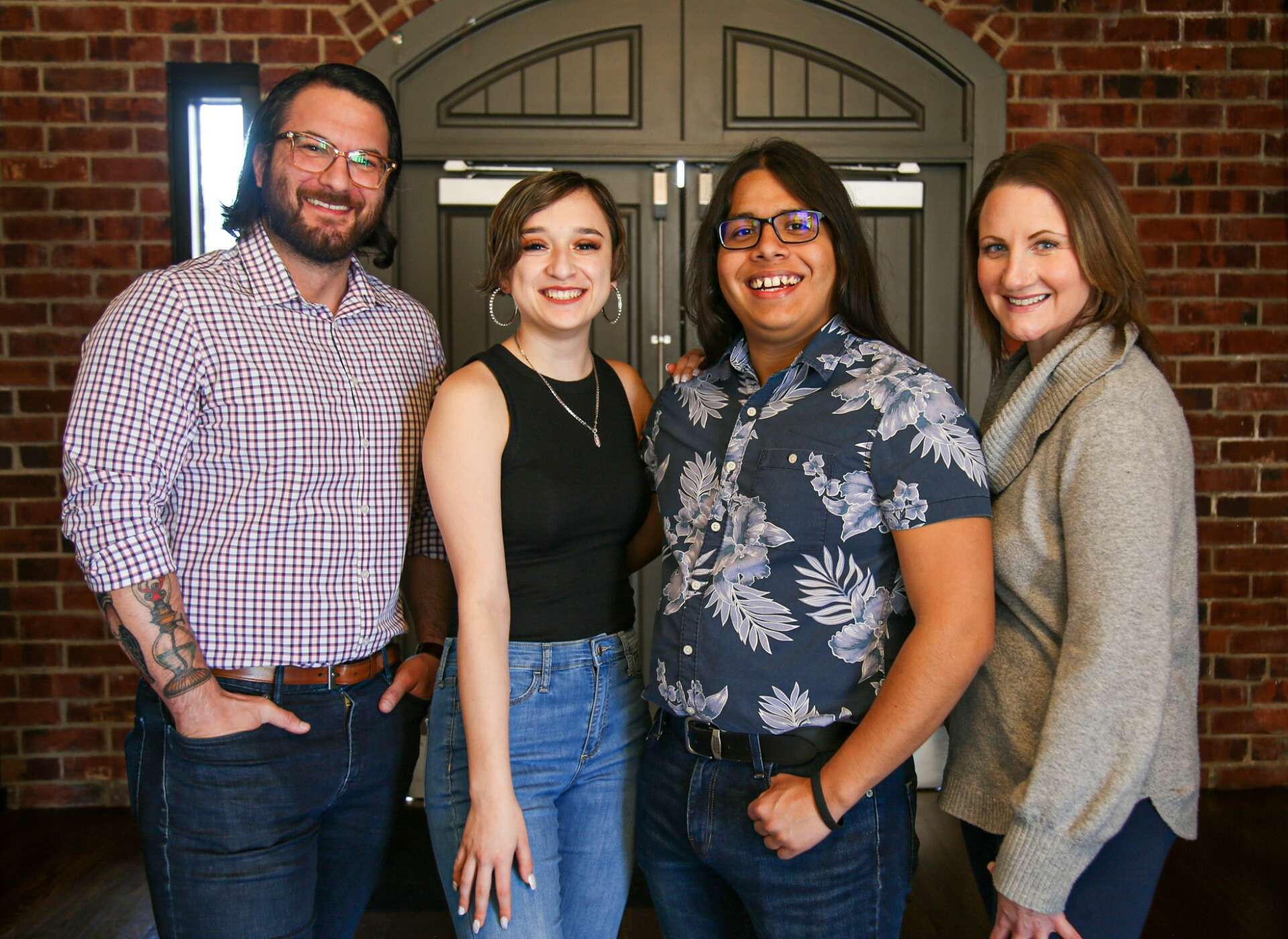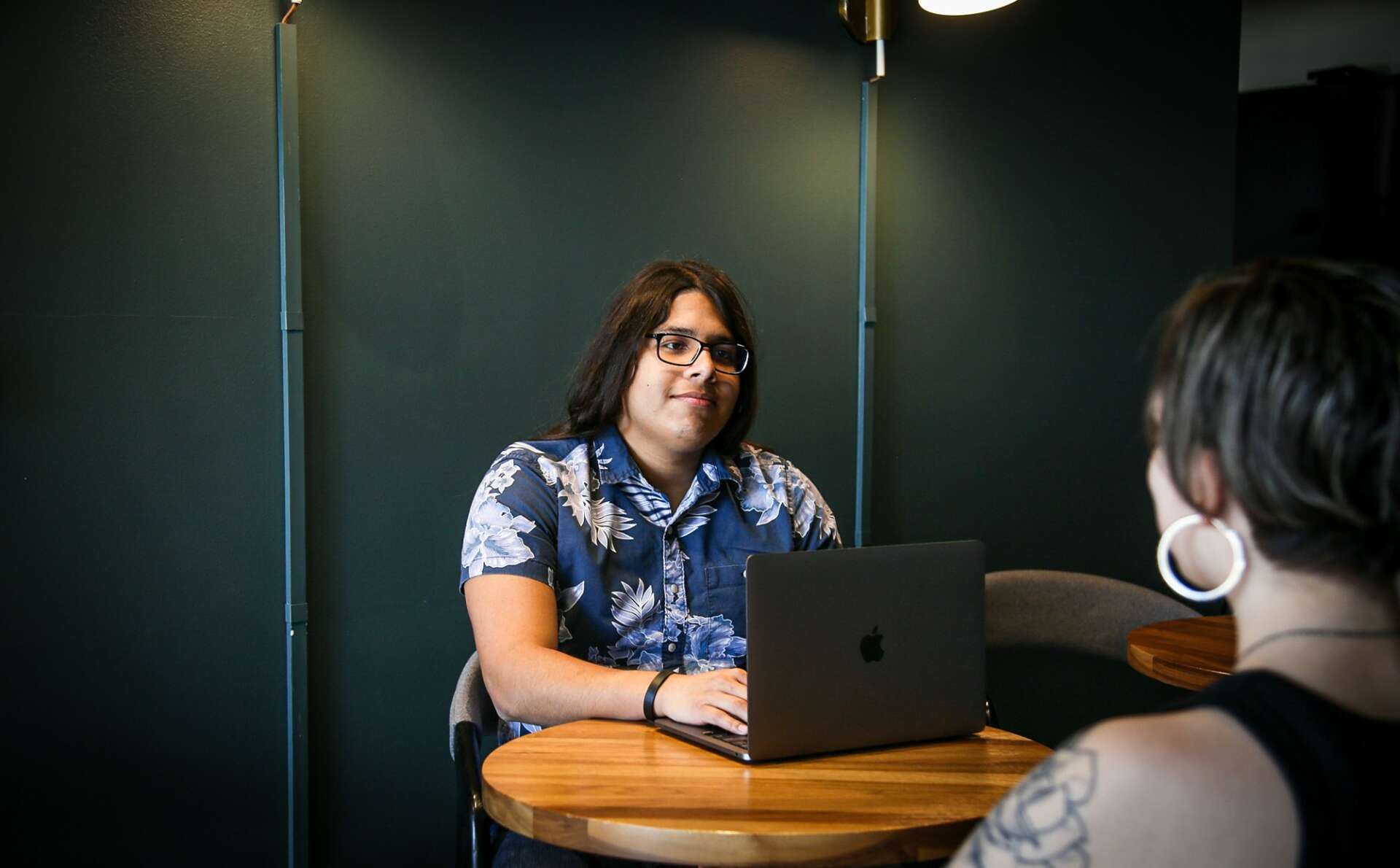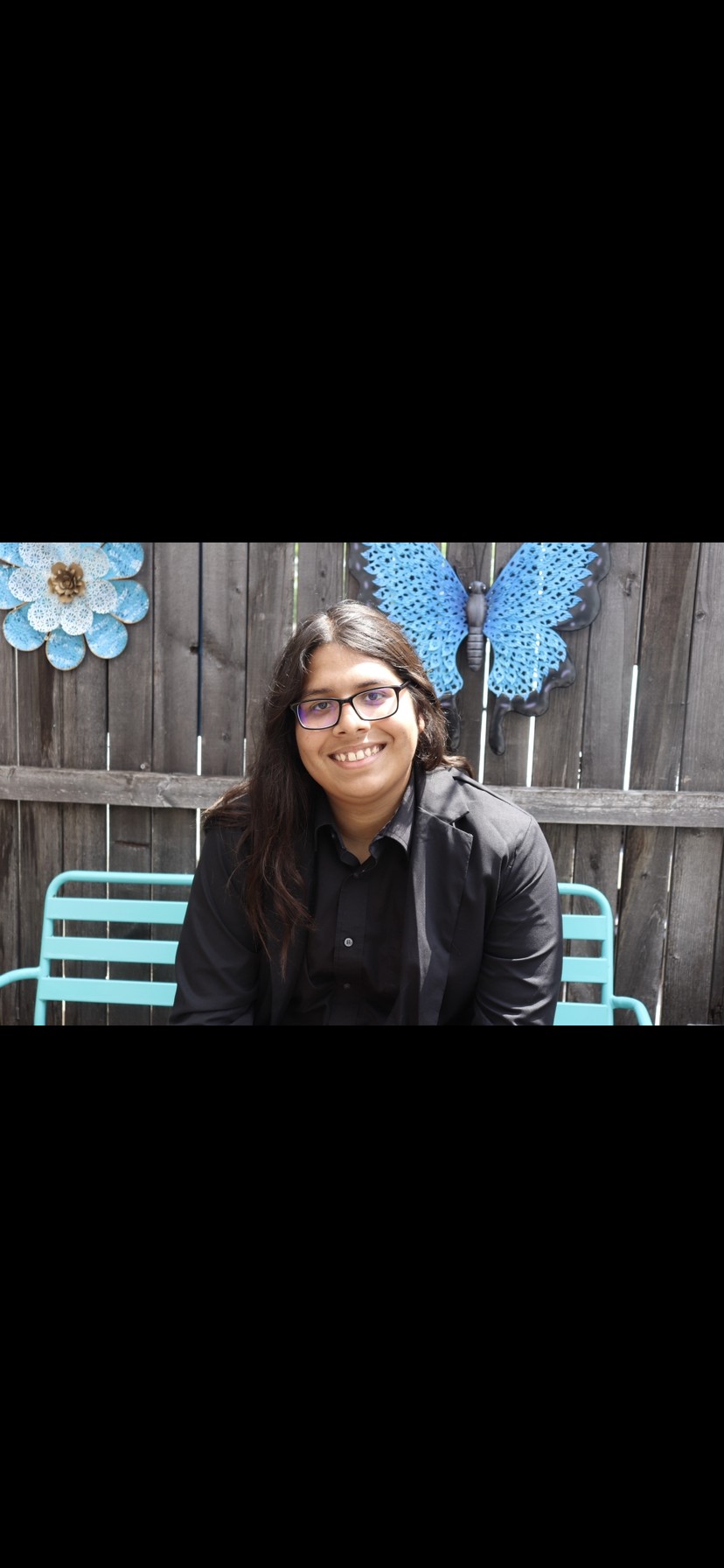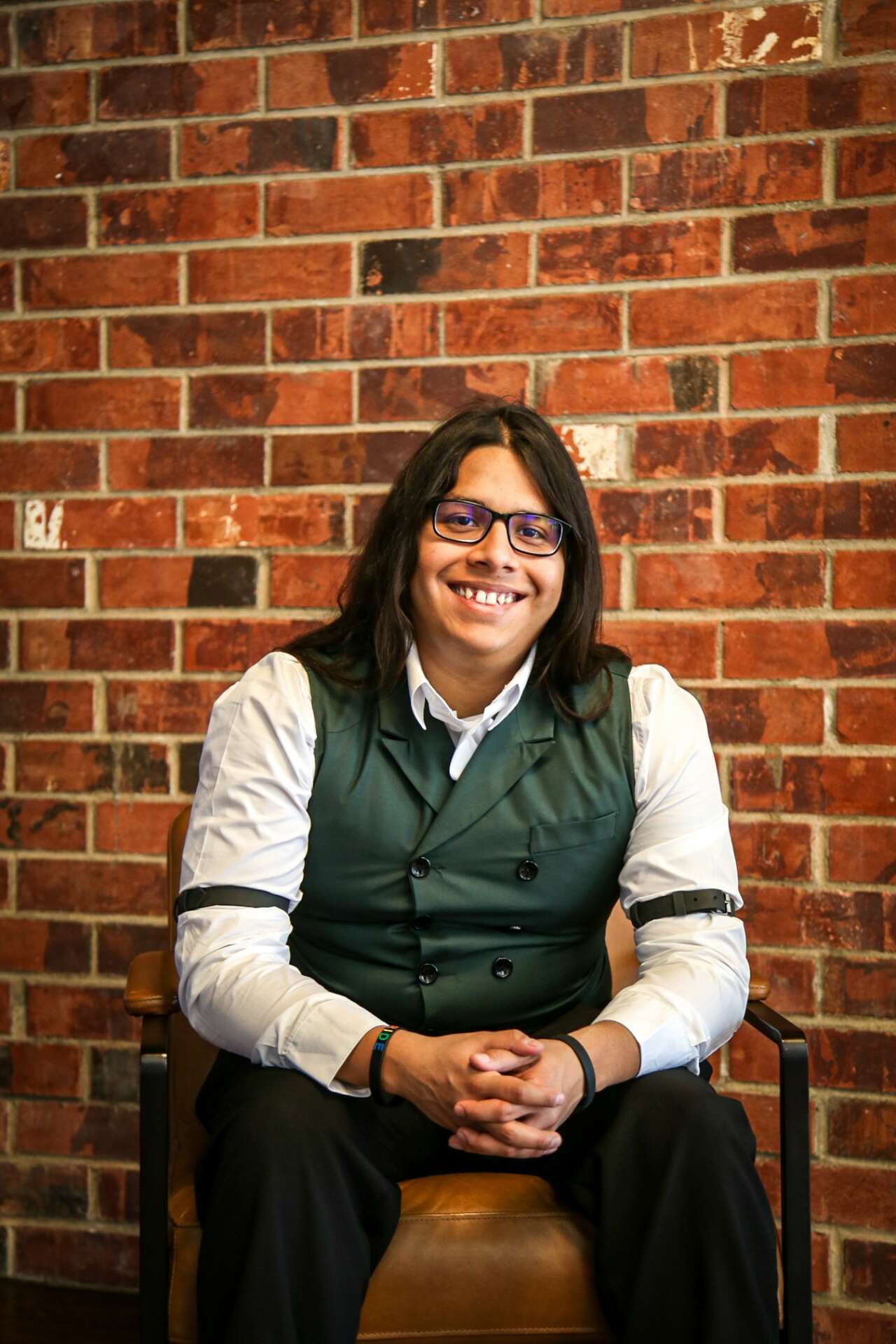We were lucky to catch up with Tomas Altamirano recently and have shared our conversation below.
Tomas, thanks for joining us, excited to have you contributing your stories and insights. Can you share an important lesson you learned in a prior job that’s helped you in your career afterwards?
One of the most pivotal moments in my career actually began when I was still a student intern in grad school. I was interning for a mental health hospital as an outpatient therapist intern, and at that point I had no experience in actually being a therapist. I had learned a couple of things in class sure, but I had yet to actually do the job. Early on I did ok since therapist interns had the option of leading the psychoeducation hour of group therapy, essentially this meant you got to work off of something pre-written and teach it to a group of patients. That was already nerve-wracking for me as a 19 year old intern with little life experience, but learning how to actually give therapy was its own beast. Within a couple of times of trying to lead as the therapist, I would always freeze up and needed the therapist supervising me to take over. These freezes made me seriously question my abilities and even if I could actually become a therapist. But then I got taught an incredible lesson by the therapist who was supervising me. He told me that as long as you did not do anything that harmed a patient, then that’s a good day of therapy. That helped me realize that I did not actually need to say something super impactful in order to do a good job. I was so worried about doing well that I froze up not knowing what the right thing to say was. It was ok to be imperfect and maybe even be wrong, just as long as you weren’t causing any harm. That’s a lesson I’ve shared with other therapists and they agree that it’s a helpful way to look at therapy.


As always, we appreciate you sharing your insights and we’ve got a few more questions for you, but before we get to all of that can you take a minute to introduce yourself and give our readers some of your back background and context?
What got me to even pursue therapy was needing therapy of my own as a teenager. About half of my problems were depression related and the other half was social anxiety, so prior to that I had no desire to choose a profession that involved such direct human interaction. But after I experienced what it was like to be helped and work through some of my problems, I realized that I must not be the only person struggling with mental health. From then on, I decided to try an become a therapist, whatever that looked like. As far as the work I do now, I’m a private practice therapist that specializes in working with the LGBTQ+ community. I see clients individually from all ages and I can even work with couples. I also run a free LGBTQ+ support group every other week! I even perform presentations for various agencies on how to better practice and interact with the LGBTQ+ support group.
What I primarily run across is a lot of transgender people since I market myself as a transgender therapist who uses they/them pronouns. In many ways our problems are similar to cisgender people: depression, anxiety, trauma and a lot of the typical stuff. But it is the way we experience any mental health condition that can be different enough that a cisgender person may not be able to understand enough to help. Of course one of the biggest challenges exclusively transgender people can face is gender dysphoria. Luckily I have studied it for years and I am only growing better at addressing it with my clients. I also recently completed training in EMDR therapy, so now I have an even stronger foundation in trauma treatment.
I am definitely most proud of how much I have been able to be open about my gender identity and use that to really focus on the population I want to help. I am agender, meaning I don’t have any internal felt sense of gender. This means I am transgender and I also fall under the non-binary umbrella. I’ve had a number of clients say they just look up LGBTQ+ friendly therapist in Texas and they very quickly find me! They then describe feeling at ease or comforted knowing there is a professional so open about their identity, and by extension incredibly equipped to help them. It’s so surreal to hear that I can be looked up in this way, and it brings me so much pride to hear this is how some people find me. If there’s anything I want potential clients to know, it’s that I will always try to do my best by you and help you work through problems however I can. I’m definitely not a guarantied fit, even if you are LGBTQ+, so I will still try to find a way to make sure you are taken care of. As a side note, you don’t have to LGBTQ+ to work with me! Not many of my clients fall outside that community, but really there’s nothing on my end that would affect how I would work with a cishet person. That is how I started out as a therapist after all!

Any stories or insights that might help us understand how you’ve built such a strong reputation?
Being as visible and honest about my identity has been the most helpful for building my reputation. This has helped me in both the realm of acquiring a client base and in being recognized amongst other professionals. Clients come to me because I am so visibly transgender on all my therapy pages, and they almost always describe being at ease when the first thing they read about me is that I’m transgender. With other professionals, I’m very upfront about using they/them pronouns and specializing with the LGBTQ+ community. To take it a step even further than that, I have regularly done presentations for different agencies on how to practice with the LGBTQ+ community. I provide so much information on the latest statistics and some of the best ways to address things like new names and pronouns. So not only do people talk about me being a rare professional, they also talk about the things I do beyond therapy. That generally makes me stand out even more than I already do, and that’s good marketing!

Putting training and knowledge aside, what else do you think really matters in terms of succeeding in your field?
In the field of therapy, I feel like experience matters just as much training, sometimes more! There are going to be moments when we have to think quick and come up with solutions, which can often mean coming up with an out of the box solution. Our knowledge base gives a good foundation to build off of, and our training helps ensure we’re consistently practicing in the intended ways. I do feel that nothing prepared more for being a therapist then actually being in the therapist’s chair and overcoming my fears about failing. No amount of training or studying could have helped me overcome that in such an effective way.

Contact Info:
- Website: https://www.mindfulpossibilities.org/
- Instagram: https://www.instagram.com/mindfulpossibilities/
- Other: https://www.psychologytoday.com/us/therapists/tomas-altamirano-fort-worth-tx/962257
Image Credits
Amairani Jimenez


